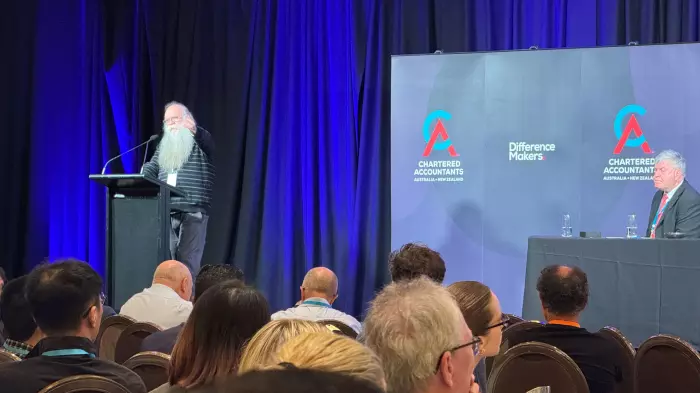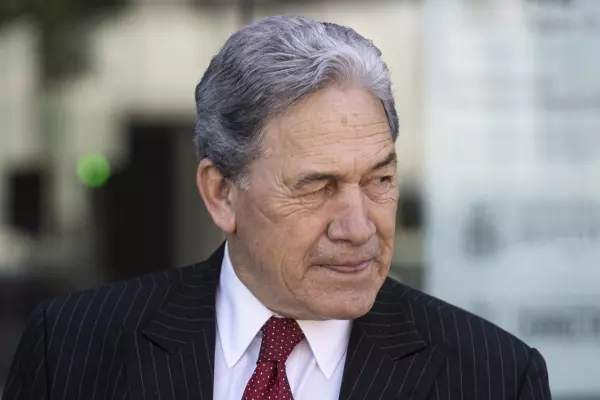The greatest wealth transfer in history – from baby boomers to younger generations – has begun. This massive wealth transfer will have an enormous impact on investment trends, the financial sector and the global economy in the decades ahead.
According to the United States Federal Reserve Board, the 70 years and above age group has US$35 trillion (NZ$50 trillion) worth of wealth compared with only US$4 trillion held by this age group thirty years ago.
This US$35 trillion, which represents just over 150% of annual US GDP, is expected to be distributed over the next 20 years.
However, the wealth transfer will be much greater than this if we include the total baby boomer generation. The US wealth figures are as follows:
| US - Wealth by generation (US$ trillion) | |||
|---|---|---|---|
Generation | Born | Wealth | % |
Silent | Before 1946 | 19.6 | 15.1% |
Boomers | 1946-1964 | 67.6 | 52.2% |
Gen X | 1965-1980 | 35.8 | 27.6% |
Millennials | 1981-1996 | 6.5 | 5.0% |
|
| 129.5 | 100% |
Source: US Federal Reserve Board
The youngest boomers will be 77 in twenty years, so it is reasonable to assume that 80% of the wealth held by boomers and the silent generation, approximately US$70 trillion before taxes, will be donated to charity or transferred to younger generations by 2041.
This US$70 trillion transfer could occur in less than two decades because wealthy individuals are distributing before they die whereas previously this was normally done through wills.
What will generation X and millennials do with their inheritances?
Will they spend it, start new businesses, put it in the bank, buy shares, invest in mutual funds, purchase property, make major contributions to charity or adopt totally different and original strategies?
But the biggest issue is that this massive wealth transfer will widen the gap between the rich and the poor as the richest 10% of Americans hold 70% of the country’s wealth.
New Zealand
There are two household or individual wealth surveys in New Zealand, a quarterly survey by the Reserve Bank of New Zealand and a more comprehensive study by Stats NZ, the last based on June 30, 2018.
The following table contains the Reserve Bank data, including investment rental property, and the commentary below is partly based on Stats NZ data, particularly its assessment of wealth on a per age basis.
| NZ & US – Total individual net wealth | ||
|---|---|---|
$ trillion | NZ | USA |
Real estate | 1.42 | 40.1 |
Financial assets | 1.19 | 105.6 |
Total Assets | 2.61 | 145.7 |
Total Liabilities | (0.31) | (16.3) |
Total net wealth | 2.30 | 129.5 |
NZ figures in NZ dollars & USA in US dollars
New Zealand’s net wealth is now NZ$460,000 per person compared with net wealth of US$390,000 (NZ$554,000) per capita in the US.
But the big difference between the two countries is New Zealanders have 54% of total gross assets in residential property and land while Americans have only 28% in this asset class.
The financial assets figures, which include private companies and farms in New Zealand, show Americans have a much greater exposure to sharemarkets, investment funds and pension funds than New Zealanders.
Stats NZ data shows 63% of household net wealth was held by individuals aged 55 and over in mid-2018. As these individuals are now 58 and older – and will be at least 78 years of age in 2041 – we can assume they will transfer, or donate to charity, around $1.15 trillion in wealth over the next two decades on the basis of an 80% distribution.
This $1.15 trillion transfer estimate assumes no increase in net wealth from current levels.
We see signs of this already with parents and grandparents partly funding their children and grandchildren into houses. But, as with the United States, this will create greater inequality as children of less well-to-do families will find it much more difficult to fund the purchase of their first home.
Clearly, the bank of mum and dad will continue to play a major role in the NZ housing market in the years ahead.
Inheritance taxes
Two months ago, the OECD published a comprehensive 145 page study Inheritance Taxation in OECD Countries.
The study’s household wealth survey, which looked at 28 of 36 OECD countries, concluded that New Zealand is ranked sixth of these 28 countries in terms of mean net wealth behind only Luxembourg, US, UK, Australia and Canada.
Like many other countries, the wealthiest New Zealanders have more than 60% of their wealth in financial assets while the less well-off are more dependent on residential property.
The report warns “that young households may find it harder to accumulate wealth”. This is because “homeownership is associated with wealth accumulation” and “young households are finding it increasingly difficult to purchase a home as rising house prices decrease affordability”.
New Zealand is one of only 12 OECD countries, out of 36, that doesn’t have an inheritance, estate or gift tax. Estate duties were introduced in this country in 1866 but were abolished by the Bolger government in 1992.
New Zealand is the only OECD country that doesn’t have a capital gains tax.
Inheritance, estate and gift taxes aren’t a major source of revenue as they account for only 0.51% of the total tax take in the OECD countries that have these taxes. Only four countries – Belgium, France, Japan and Korea – receive more than 1% of their total tax take from these sources.
The OECD believes well-designed inheritance taxes can raise revenue and reduce inequality. It states: “From an equity perspective, an inheritance tax, particularly one that targets relatively high levels of wealth transfers, can be an important tool to enhance equality of opportunity and reduce wealth concentration”. The OECD argues there is a stronger argument for inheritance taxes in countries that have low or non-existent capital gains taxes.
However, the OECD notes there is strong opposition to inheritance taxes because individuals totally overestimate their share of these taxes and they are usually poorly designed and explained.
Impact of massive wealth transfers
The anticipated US$70 trillion US wealth transfer and $1.15 trillion in NZ are massive, no matter what way we look at them.
For example, $1.15 trillion in New Zealand represents 6.1 times the total value of all NZ companies listed on the NZX, 14.4 times total KiwiSaver funds at present and represents in excess of 80% of the total value of all NZ residential property, and the land it sits on, at present.
We can make a few general comments about this massive wealth transfer including:
- Beneficiaries may be far bigger risk takers than their parents.
- These beneficiaries may be willing to take risks before they receive their inheritances because these inheritances act as a safety backdrop.
- They may be much more willing to start up new companies rather than following more conventional careers in law and accounting.
- Their investment approach may be totally different as indicated by the growth of Robinhood in the US and Sharesies in NZ.
- Investors may become more dependent on social media and other digital sources for their investment advice, instead of more traditional channels. This could create major problems for regulators.
- Young New Zealanders are expected to invest more in the Australian and US sharemarkets because they have access to information on companies listed on these markets through social media and the NZX is failing to attract new growth-orientated companies.
- Gen X and millennials are increasingly investing in small companies through crowd funding platforms.
- Younger generations are expected to adopt a more ethical approach towards investing, particularly as far as climate change is concerned.
- They may be willing to donate more to charities although the lack of transparency by the NZ charity sector is a problem.
This list could go on and on as the massive wealth transfers in the years ahead will create many opportunities – and challenges – for businesses and governments.
The main potential downside of this massive NZ wealth transfer is that recipients divert most of their inheritances to bigger and more expensive houses, thereby dramatically widening the inequality gap.
Disclosure of interests; Brian Gaynor is non-executive director of Content Limited, the publisher of BusinessDesk, and of Milford Asset Management.














